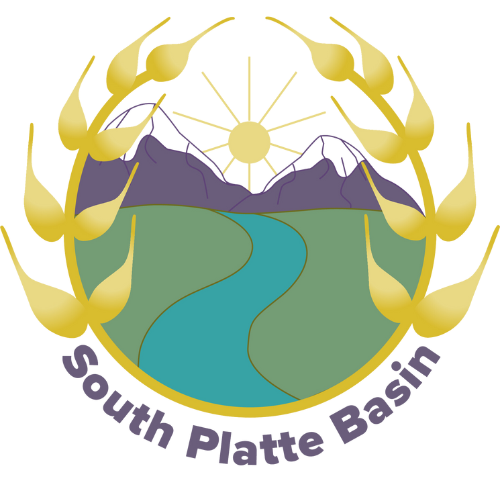-
The South Platte Basin will collaboratively develop new projects to maximize the use and effectiveness of existing native surface and groundwater supplies.
The South Platte Basin will incorporate the five planning scenarios from the Technical Update to better manage uncertainty of future water needs. Scenario planning allows for evaluating inherent uncertainties in future climate conditions, social conditions (such as values and economics), and supply-demand conditions (e.g., energy, agricultural, and municipal needs).
he South Platte Basin will support the State of Colorado’s efforts to improve efficiency and effectiveness in water project permitting by local, state, and federal agencies while properly mitigating negative environmental impacts.
-
The South Platte Basin will work collaboratively with the state of Colorado and entities in other basins, including the Colorado Basin, to develop and manage all water supplies for the benefit of the entire state.
The water supply of the South Platte River Basin is highly variable, with an approximate average annual native flow volume of 1.4 million AF. About 400,000 AF of transmountain water is imported from the Colorado Basin and approximately 100,000 AF from the Arkansas, North Platte, and Laramie Basins. Approximately 30,000 AF from non-tributary groundwater aquifers supplement the water supply in the South Platte River Basin. Surface water diversions average about 4 million AF annually, which is much more than native supplies combined with imports from other basins. In addition, annual groundwater withdrawals total 500,000 AF on average. The amount of diversion in excess of native flow highlights the return-flow-dependent nature of the basin’s hydrology, and the basinwide efficient use and reuse of water supplies.
-
BIP Section 4.3 | BIP Section 4.4
Municipal and industrial water users in the Metro and South Platte Basins will maintain their leadership role in conservation in the state of Colorado, recognizing that limited water supplies and a robust population drive the application of conservation best practices within the basin and throughout the state. Future conservation and efficiency efforts can reduce adverse environmental and social impacts of new supply development, help mitigate the impacts of climate change, and also maintain or improve valuable environmental and social benefits of urban landscapes.
Municipal and industrial water users in the South Platte Basin will explore opportunities to expand their existing reuse practices and programs. Limited native water supplies drive the need for a broad application of water reuse practices of reusable supplies within the South Platte Basin.
-
Due to the importance of agriculture to the future well-being of the South Platte River Basin, the Republican River Basin, and the state of Colorado, both basins support measures to maintain, and where legally, physically, and economically possible, improve and increase irrigated agriculture in the face of increasing M&I demand.
-
Healthy watersheds support economies, environment, and quality of life by enhancing the ability of rivers and streams to provide clean drinking and irrigation water, productive fisheries, quality habitat, and outdoor recreation. Healthy watersheds also help mitigate the impacts of climate change by reducing wildfire risk. To benefit the ecological health of all the watersheds within the basin, as well as to meet water supply, economic, and water quality demands, the South Platte Basin will recognize the importance of and encourage strategies that enhance watershed functions and hydrologic processes.
Throughout the South Platte Basin, the importance of ecological processes and environmental attributes will be fully recognized. The South Platte Basin will implement strategies that protect and enhance environmental attributes for ecologically, socially, and economically important habitats and focus areas.
Throughout the South Platte Basin, the importance of water recreational attributes and the associated economic and public health benefits to communities will be fully recognized. The South Platte Basin will implement strategies to protect and enhance recreational landscapes and sensitive habitats for future generations.
-
he South Platte Basin will expand on existing communications and outreach programs to improve knowledge and understanding of water challenges and needs for all citizens of the South Platte Basin, and on how these needs are being addressed through the South Platte BIP.
Water Supply Reserve Fund Grant Topic Areas
Requests for Roundtable Letter of Support - Colorado Water Plan Grant Guidance
Water Plan Grant funding is available to make progress on the critical actions identified in Colorado’s Water Plan (CWP) and its Measurable Objectives. WSRF grant funds as match funding for a Water Plan Grant may not be approved unless prior written approval from CWCB staff has been secured in advance of the application submission. Water Plan Grants are administered by the CWCB. Application instructions and eligibility requirements are located here: Colorado Water Plan Grants | DNR CWCB
Applicants for Water Plan Grants are encouraged to obtain a letter of support from the local basin roundtable. In addition, other CWCB funding opportunities may also encourage applicants to obtain a letter of support from the local basin roundtable.
Requests for Colorado Water Plan letters of support from the South Platte and Metro Roundtables can be made as follows:
1. Applicant should consult CWCB deadlines to ensure that a request for a letter of support occurs at a RT meeting in advance of the grant deadline.
2. Send a one-page summary of the project to the Needs Committee Chair at least two weeks in advance of the appropriate RT meeting. The summary should include:
a. Project description, timeline, and budget
b. Grant request
c. Discussion of how the project fits the RT’s and Water Plan priorities
3. Attend the RT meeting. The request will be introduced by the Needs Committee Chair, and you will be asked to provide a brief (less than 5 minute) presentation of your request and take questions from the RT membership.
4. The RT membership will vote on the request for a letter of support.
5. Provide a draft letter of support to the RT Chair for signature in advance of the CWCB application deadline.
